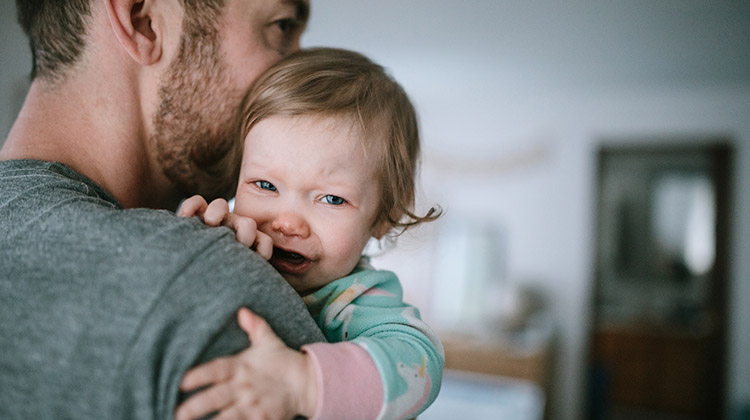
By now we all know about COVID-19, but you may have heard about another virus going around Kansas City, called RSV. This respiratory virus gives cold-like symptoms, can be dangerous for some infants and young children and is hitting our area earlier than expected. Here’s what you should know.
What is RSV?
RSV, short for respiratory syncytial virus, affects the lungs. According to the CDC, RSV is a contagious virus that can be spread through droplets from sneezing or coughing, touching infected surfaces and then your face, or direct contact. Virus symptoms are cold-like and show 4 to 6 days after becoming infected. Symptoms include:
- Cough
- Trouble breathing
- Fever
- Runny nose and nasal congestion
For most children, RSV causes mild symptoms and the body fights the virus off in 1-2 weeks. In young children, particularly those less than 6 months, and children with weakened immune systems, RSV can become dangerous by causing other infections like bronchiolitis and pneumonia.
How is it different than COVID-19?
RSV symptoms are like those of COVID-19 symptoms, and the symptoms of the COVID-19 delta variant. Some symptoms like nausea, vomiting, diarrhea and sore throat may be more common with COVID-19 but can be seen with RSV. Along with the symptoms of RSV, with COVID-19 you may also notice fatigue, muscle or body aches, headache and loss of smell or taste.
The virus that causes COVID-19 spreads more easily among people than RSV. This is why if you have any of the symptoms of COVID-19, it is important to be tested for COVID-19 and stay home if you are sick.
Is RSV in Kansas City?
We typically have RSV every year, but we are currently seeing an increase in RSV cases in the Kansas City area and around the United States. This is unusual because RSV typically occurs in the winter months, starting around November. In 2020, there was very little RSV both in the Kansas City area and in the United States. This is likely related to people wearing masks, washing hands and distancing which all decrease the spread of respiratory viruses, including the virus that causes COVID-19 and RSV. With people out in the community more this year, it’s allowed RSV to spread to more people and sooner in our area.
Can you treat RSV?
There is no specific treatment or vaccine available for RSV. You can manage fever and pain with most over-the-counter medications. If your child is having trouble breathing or staying hydrated, call your doctor or seek medical care.
Can RSV spread be prevented?
All the same things we are doing to slow the spread of COVID-19 will also help prevent RSV from infecting people.
- Wash your hands for at least 20 seconds.
- Keep away from people who are sick.
- Cover coughs and sneezes.
- Clean surfaces often like doorknobs, car handles, phones and keys.
- Stay at home if you are sick.
In the same way we are protecting ourselves from COVID-19, those actions can also help protect ourselves and our children from risk of other viruses, like RSV. We can keep using hand soap or hand sanitizer and other precautions to help keep everyone healthy this upcoming fall and winter.
For more information, check out respiratory resources from Children’s Mercy, including ways to help your child at home and frequently asked questions about suctioning.

